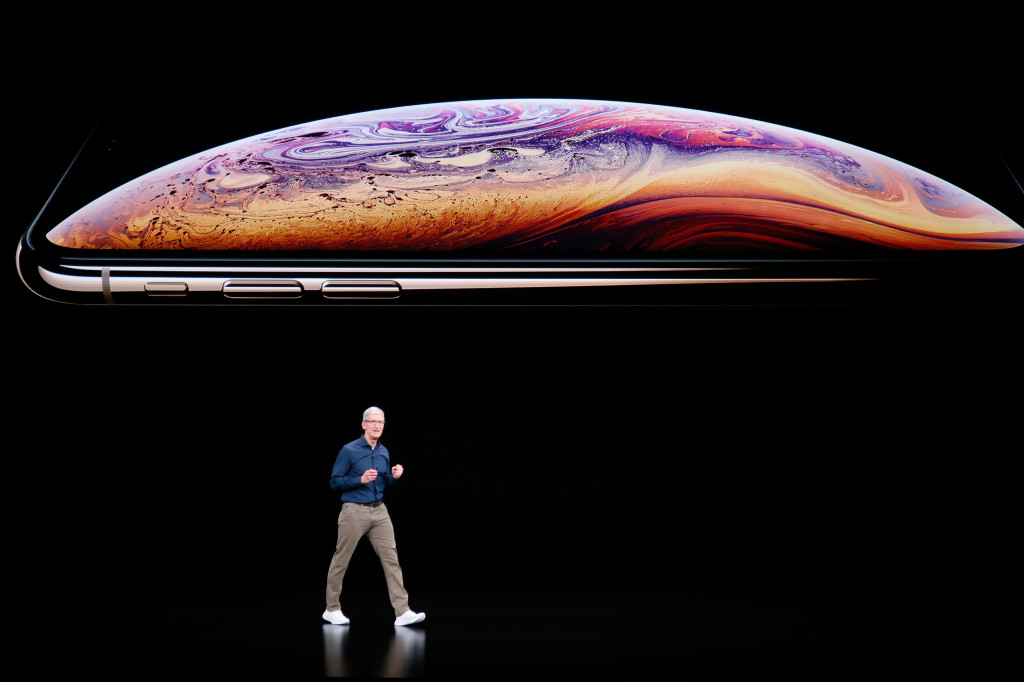The trade war is on. And the battlefield is getting ugly.
![]() Bay Area business giants such as Apple, Tesla, HP and Intel joined a broad stock market retreat Monday as China retaliated to President Donald Trump’s new tariffs on Chinese goods by slapping new tariffs of their own on $60 billion in products imported from the United States. China said that starting June 1, it will raise the tariffs on approximately 5,000 different goods to 25% and on a number of other products to 20%. The current tariff rates are now 5% to 10%.
Bay Area business giants such as Apple, Tesla, HP and Intel joined a broad stock market retreat Monday as China retaliated to President Donald Trump’s new tariffs on Chinese goods by slapping new tariffs of their own on $60 billion in products imported from the United States. China said that starting June 1, it will raise the tariffs on approximately 5,000 different goods to 25% and on a number of other products to 20%. The current tariff rates are now 5% to 10%.
China’s move came after Trump on Friday authorized an increase in tariffs to 25% from 10% on approximately $200 billion of Chinese products that are imported into the U.S.
Trump took to Twitter early Monday morning to let Chinese President Xi Jinping know his thoughts about the trade dispute, and who he thinks will suffer the most from the row.
“I say openly to President Xi & all my many friends in China that China will be hurt very badly if you don’t make a deal because companies will be force to leave China for other countries,” Trump tweeted. “Too expensive to buy in China. You had a great deal, almost completed, & you backed out.”
I say openly to President Xi & all of my many friends in China that China will be hurt very badly if you don’t make a deal because companies will be forced to leave China for other countries. Too expensive to buy in China. You had a great deal, almost completed, & you backed out!
— Donald J. Trump (@realDonaldTrump) May 13, 2019
“If this trade situation spirals further, tech stocks are ultimately caught in the crossfire, with Apple and the semiconductor space remaining front and center,” said Dan Ives, director of research at Wedbush Securities.
And because of the Bay Area’s reliance on tech businesses, China’s return volley was immediately felt by many of the region’s leading companies.
Apple shares fell more than 5% — to as low as $186 — on fears that the trade war will force the company to raise prices on iPhones, iPads and Mac computers that, while designed in California, are made almost exclusively in China and exported back into the U.S.
Apple also received some bad news as the Supreme Court ruled in a 5-4 decision that a proposed class action lawsuit that accuses Apple of monopolizing the market for iPhone software applications sold on the App Store may proceed.
“Apple, as the most visible of the U.S. brands targeted, is likely to be hit the hardest because China has positioned Apple as the smartphone face of the U.S.,” said Rob Enderle, director of tech research firm the Enderle Group. “But other U.S. brands competing with Chinese companies will be hurt badly as well, and this trade war should allow China to significantly close on their goal to pass the U.S. as the world tech capital.”
Tesla, which began shipping its Model 3 sedan to customers in China earlier this year, saw its shares fall more than 5%, to a 52-week-low of $226.64, shortly after trading began Monday.
Among other notable regional business, HP was off by 3.6%, at $18.42 a share; Intel shares droopped 2.6%, to fall to $44.99; graphics chipmaker Nvidia fell by 4.6%, to $161.19 a share; and Advanced Micro Devices retreated by more than 6%, to $26.23 a share.
The local tech losses had a major role in driving down the major stock-market gauges, with the blue chip Dow Jones Industrial Average plunging 584.45 points, or more than 2%, to 25,380.27. The Nasdaq Composite Index, which includes Apple, Intel, Microsoft and dozens of other big-name tech stocks, fell 234.36 points, or 3%, to drop to 7,684.35. The S&P 500 Index was also not immune to the day’s selloff, as the broad-based market index dropped 65.47 points, or 2.3%, to 2,815.93.
The latest round in the U.S.-China trade dispute came in the way of Trump following through with his threat to impose higher tariffs on products imported from China after negotiators failed to reach a new trade deal on Friday. One of the key tenets that Trump has pushed in the trade talks has been China’s failure to crack down on intellectual property fraud involving American tech products and services, which the Trump Administration claims impacts the ability of U.S. companies to sell their products fairly in China.
Trump has also threatened to impose new tariffs of 25% on another $325 billion in imported Chinese goods should a trade deal not be reached.










